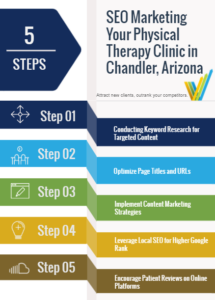Hackers are stirring up trouble for website owners just like you. Learn what they’re doing, how they do it, and how you can stop them in this post.
“Hack” used to be a bad term. The first thing that came to your mind in most cases was breaking the law.
Today, “hack” sometimes refers to shortcuts to doing things, like accomplishing more at work.
So which do I have for you today?
Unfortunately, it’s “hack” in the worst sense of the term.
Here’s an example of how it works, according to Search Engine Roundtable:
With a certain UK search term, you change Google’s search filter to the past 24 hours. Click on the third or fourth search term, and you’re sent through several redirected web pages until you finally end up at a porn site.
Not exactly what you’d want, is it?
Hackers do this for more common search terms, and then they redirect you to their own sites. Those sites could be porn sites, or affiliate sites trying to peddle you junk products loaded with viruses and malware. One method, called “bait-and-switch,” involves hackers gaining access to your website, using your SEO authority, and then publishing their own pages on your site that directs visitors to their own content.
The porn site? Who knows, that could be teenage thrill seekers just trying to get a rise out of searchers.
It’s a convenient crime for hackers because they’re often in different countries. So what recourse do you have to deal with them? It’s not like you can call your police department for help.
Let me explain what to do.
Hacking Prevention Strategies You Can Use
Really, the top thing you can do is to monitor your website daily with a security scan. That’s something you should have your SEO consultant or agency do. Google Webmaster Tools does a pretty decent job of notifying you of what’s going on with your site too.
Additionally:
- Update Your Software: out-of-date WordPress plugins make your website vulnerable to hacking. WordPress itself and any other add-ons on your website need to be updated the minute those updates are available. Hackers wait for updates to happen, and then pounce immediately because they know that’s their window of opportunity.
- Use strong passwords. Today, keeping strong passwords is no longer a nightmare like it used to be. No need to keep a sheet of paper with all 139 of your usernames and passwords anymore.
Just use Lastpass. It’s free for your laptop or desktop for one thing. You can store an unlimited number of passwords. It generates super-secure random passwords. You just click a small button to enter your username and password to login to each site. All you have to remember is your password to log on to Lastpass. It synchs across all devices, and right now it’s just $12 per year for a single account. Not a bad deal at all.
- Have a reputable host. Web hosting providers range from “excellent” and “trustworthy” to “dishonest” and “avoid at all costs.” Quality hosting isn’t expensive, so don’t be afraid to pay for a big-name hosting company (usually just $5 – $12 per month). And good hosts help you work through hacking issues when you have them.
- Backup your site. Your SEO should do this for you anyway. Some backup programs back your website up to your server. Others send you an e-mail copy. You might want the e-mail copy so you have one you can save that hackers cannot access.
It’s unfortunate some people spend all their time making life difficult for everyone else. But it’s the SEO world you live in today.
So, make sure you or your SEO consultant stays on top of your site’s security. And if you don’t know how they do this, now’s the time to have that conversation.
Stay safe out there!






